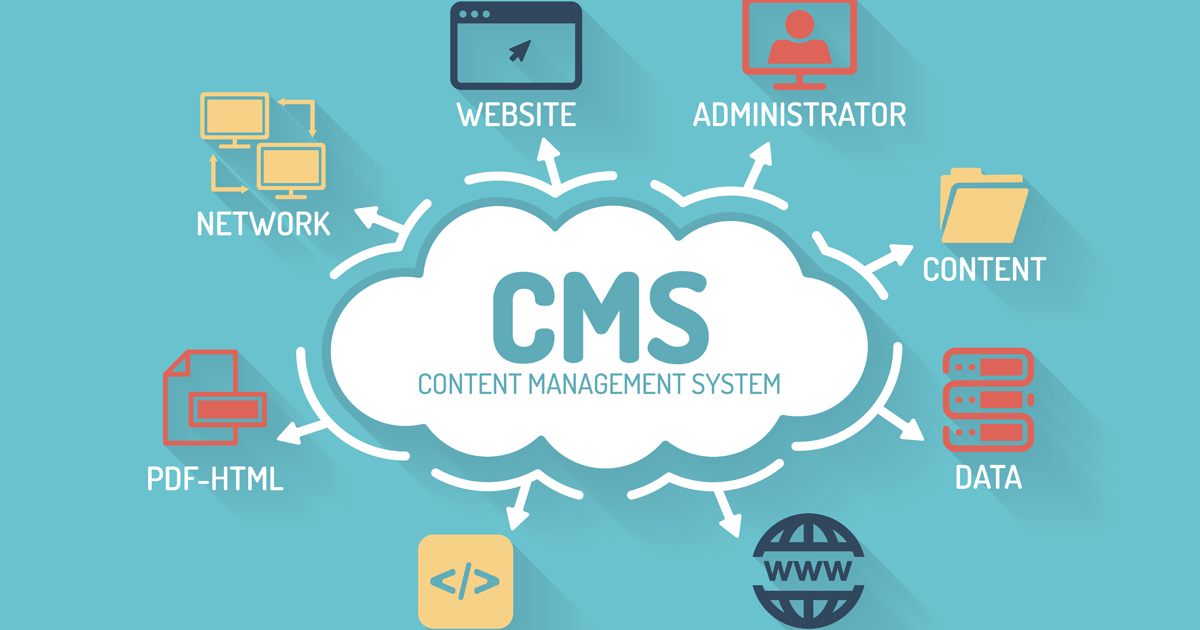In the digital age, having an effective online presence is crucial for the success of small businesses. With numerous website builders available, choosing the right one can be a challenging task. In this comprehensive guide, we explore the top 10 website builders for small businesses in 2025. Each platform offers unique features and benefits that cater to different needs, from ease of use to advanced customization options.
1. Wix
Wix is a leading website builder known for its intuitive drag-and-drop editor and a vast selection of customizable templates. It is ideal for users who want to create a professional-looking website without extensive technical knowledge. Wix offers a variety of features including built-in SEO tools, e-commerce capabilities, and mobile optimization. Additionally, Wix’s AI-driven design assistant helps streamline the design process by providing personalized recommendations based on your business needs.
With its extensive app market, Wix allows users to enhance their website’s functionality with additional tools and integrations. Its flexibility and scalability make it a popular choice among small businesses seeking a balance between design freedom and functionality.
2. Squarespace
Squarespace is celebrated for its elegant and modern design templates that cater to various industries. It is perfect for businesses that prioritize aesthetics and user experience. Squarespace provides a robust set of tools including built-in SEO features, a powerful blogging platform, and comprehensive e-commerce options. Its user-friendly interface ensures that even beginners can create visually appealing websites.
Squarespace’s design flexibility is enhanced by its intuitive drag-and-drop editor and custom code options. The platform’s integrated analytics tools allow businesses to track website performance and make data-driven decisions.
3. Shopify
Shopify stands out as a dedicated e-commerce platform that provides a comprehensive solution for online stores. It offers customizable templates, secure payment gateways, and extensive inventory management features. Shopify’s scalability and integration with various sales channels make it an excellent choice for small businesses looking to expand their online presence and increase sales.
The platform’s app store includes a wide range of tools and integrations that enhance functionality, such as marketing automation, customer support, and advanced reporting. Shopify’s 24/7 customer support and extensive documentation further support its appeal to small business owners.
4. Weebly
Weebly offers a straightforward website-building process with its easy-to-use drag-and-drop editor. It is ideal for businesses that need to create a website quickly and efficiently. Weebly provides essential features including SEO tools, e-commerce support, and integrated marketing options.
Weebly’s mobile app allows users to manage their website and online store from anywhere, making it a convenient option for on-the-go business owners. Its affordability and ease of use make it an attractive choice for businesses on a budget.
5. WordPress.com
WordPress.com is renowned for its flexibility and customization capabilities. With a vast library of themes and plugins, users can create highly personalized websites that cater to their specific needs. WordPress.com offers robust SEO tools, content management features, and e-commerce support through plugins like WooCommerce.
The platform’s open-source nature allows for extensive customization and scalability. For businesses seeking a highly customizable solution, WordPress.com provides a powerful and versatile option.
6. GoDaddy
GoDaddy is well-known for its domain registration services but also offers a user-friendly website builder. It features a simple drag-and-drop interface, customizable templates, and integrated marketing tools. GoDaddy’s website builder is ideal for businesses that want a quick setup with seamless domain integration.
The platform’s support services and additional features, such as email marketing and SEO tools, provide a comprehensive solution for small business owners. GoDaddy’s all-in-one approach simplifies website management and enhances convenience.
7. BigCommerce
BigCommerce offers a robust e-commerce platform designed for growing businesses. It includes advanced features such as multi-channel selling, customizable templates, and built-in SEO tools. BigCommerce supports businesses with extensive product catalogs and high sales volumes, providing scalability and flexibility.
The platform’s analytics and reporting tools help businesses optimize their online store’s performance, while its integration with third-party apps extends functionality. BigCommerce’s support and resources cater to businesses aiming for significant growth.
8. Webflow
Webflow combines visual design with code capabilities, offering a high level of customization. Its visual editor allows users to design complex layouts without extensive coding knowledge. Webflow’s built-in CMS and SEO tools provide a comprehensive solution for creating a unique and professional website.
Webflow’s responsive design features ensure that websites look great on all devices. The platform’s hosting options offer fast and reliable performance, making it suitable for businesses that require advanced design and functionality.
9. Duda
Duda is tailored for agencies and small businesses needing efficient website-building tools. It offers customizable templates, client management features, and SEO tools. Duda’s platform facilitates collaboration among teams and streamlines the website creation process.
Its analytics features provide insights into website performance, helping businesses make data-driven improvements. Duda’s focus on client management and teamwork enhances its suitability for agencies and businesses with multiple stakeholders.
10. Jimdo
Jimdo is known for its simplicity and quick setup process. It offers a range of design options and essential features for building a functional website. Jimdo’s SEO tools, e-commerce capabilities, and user-friendly interface make it a solid choice for small businesses seeking an efficient website solution.
The platform’s AI-driven design assistant helps users create a website tailored to their specific needs. Jimdo’s customer support ensures that help is available when needed, adding to its overall appeal.
What I looked for in the best website builders
Ease of use
A good website builder is intuitive, clear and, ideally, even fun to use. Almost all website builders offer some kind of “introductory tour”. Once you're past the setup phase, all the tools you need should be easy to find and it should be clear what you can and can't do with each tool.Editing the most important elements of the website should be as simple as possible. This means that customization options should not be hidden behind multiple layers of navigation. You should also be provided with clear and helpful support options that can provide timely answers.Bonus points were awarded if the kit automatically saves your work and reliably informs you about important steps that still need to be completed (such as publishing the website or connecting a domain).Design flexibility
If you want your website to stand out from the crowd, it shouldn't look like another version of the same template that visitors have seen a hundred times before. While most users will have to start from a template, many website builders now offer an extremely large selection of distinctly different templates. They also provide you with the customization options to transform the template into a distinctive design with its own identity. The following things are required for this:- A variety of templates to choose from
- Full control over the color scheme
- A wide selection of fonts
- Many options for page layouts and/or blocks
Pricing
This criterion is less about the absolute cost and more about the value. A website builder may offer really cheap packages. However, if the functions in the most expensive package are significantly fewer than in another modular system in the cheapest tariff, then you don't have to think twice.A website builder with a good price-performance ratio offers many functions at a low cost . There may be several packages you can choose from. This allows you to decide according to your requirements. Squarespace, for example, isn't the cheapest builder on the market, but it has a lot to offer. I think it's excellent value for money. You can find out about the current prices by clicking here .Often (but not always) higher quality packages offer either or: more bandwidth and storage or access to advanced e-commerce features. You know best what your website needs and the following results should bring even more clarity.Additional considerations
While the criteria above are the most important when comparing website builders, there are a few specific features that make some website builders stand out from the rest . Each of these features alone wouldn't earn a website builder a higher ranking, but when combined with other powerful features, they make these builders even more powerful.But the additional functions also have to be useful and not just promise to be good. Here are a few more things I paid attention to:- SEO opportunities : Most website builders will help you optimize your title tags and meta descriptions. But those with additional technical functions, such as the automatic generation of a robots.txt file or the so-called sitemaps, are really useful.
- Lots of apps and integrations : This has more to do with functionality and less with design. A good website builder should give you the options you need. Ideally, other tools or software that you may already use can be implemented. This refers, for example, to MailChimp for email campaigns.
- A truly unique feature : Some website builders offer outstanding features that are unique to them and therefore cannot be used to compare them with others. They are mentioned in the respective construction kits.
E-commerce builder or regular builder with e-commerce functions?
Some entries on our list, like Shopify or BigCommerce, are more ecommerce platforms than traditional website builders. This means that the focus is almost entirely on their online store capabilities and not on design or customization. The online store's features far exceed those of regular website builders , but you'll find that almost every other aspect of a website becomes a bit unwieldy.Regular website builders with e-commerce capabilities offer such features more like an extension and less as a primary service. Still, some “regular” builders, such as Squarespace, have started offering impressive e-commerce features . This makes it much easier to provide a robust blog, a few homepages and lots of photos and videos.I have compared regular website builders and e-commerce builders and can say that there is no one-size-fits-all solution for all users. The type of construction kit depends primarily on the purpose of your website .If the main goal of your website is to sell products or services, then an e-commerce platform is a better choice. An e-commerce builder offers additional payment options, more detailed product settings and categorizations, and sometimes even shipping offers. They also have a special infrastructure that allows them to better process large orders or high sales figures.However, if you run a blog or personal website like a portfolio and only want to sell a few products, such as books or online courses, then a regular builder with e-commerce functions may be a better choice. You get everything you need and there is also a good online shop.Many e-commerce builders offer some level of integration with other platforms or website builders. In this case you get the best of both worlds . If you're primarily a retailer but want to enhance your website with a blog or other content, then this combination may be the right choice.The testing procedure
To test the website builders, I started with a framework for a simple website. I simply added the elements that one would consider necessary for any website. Every website I created had :- Static text page (About us)
- Blog post
- Photogallery
- Calendar or events page
- Contact page
- Online-Shop
- Change colors and fonts
- Add images
- Embed video
- Create a contact form
- Add a button
- Edit a menu
- Change the alt text
- Test SEO features
The complete comparison of website builders: This is how the individual providers performed
Now it's time for the fun part: the actual results of the tests I ran. Below you will find a detailed analysis of my results, evaluated according to the criteria mentioned above. But first there is a short table in which I compare some of the most important functions.I used Google's PageSpeed Insights to check which builders not only produce good-looking websites but also optimize for fast loading times. I tested the websites on both desktop and mobile devices. The points you see here range between 1 and 100. 100 is the best possible value.



